#lm 1.3.8
Explore tagged Tumblr posts
Text
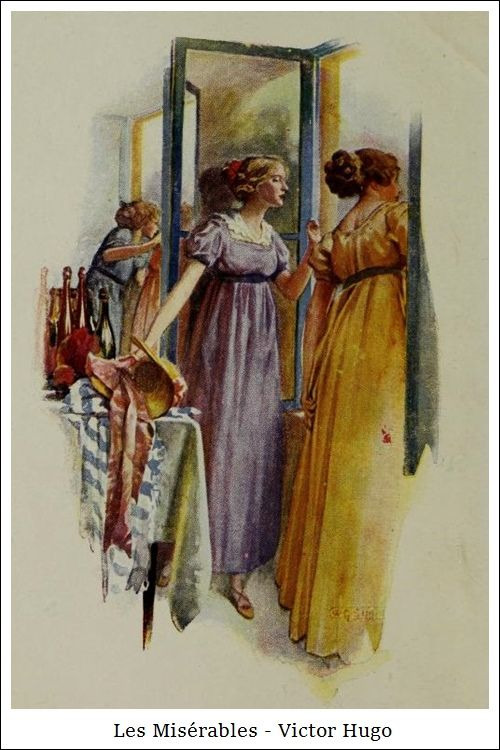
"The Death of a Horse" is one of the most important chapters in terms of Les Misérables' composition. The whole idea for Les Misérables began with three events that deeply affected Victor Hugo: witnessing a man arrested for stealing bread, intervening in an incident involving an assaulted prostitute, and seeing a horse die. He wanted to weave these three moments into a single narrative. However, long before he began drafting the novel, he wrote a poem about the death of a horse. In a way, this is where Les Misérables truly began.
And, of course, the scene itself foreshadows Fantine's sad fate.
48 notes
·
View notes
Text
I.iii.8 Mort d'Un Cheval
(this poll never actually ran, so here it is, out of order, for completeness' sake)
Death of a Horse: Wilbour, Denny, FMA, Rose, Donougher
The Death of a Horse: Wraxall, Hapgood, Walton
#les miserables#lm chapter title bracket#2 translations#lm 1.3#lm 1.3.8#cw animal death#<- just in case#iirc I originally didn't run it because it was both a one word difference and a touchy subject for me so I skipped over it.#when looking back over I figured I should but. yeah
8 notes
·
View notes
Text
The Death Of A Horse
Les Mis Letters reading club explores one chapter of Les Misérables every day. Join us on Discord, Substack - or share your thoughts right here on tumblr - today's tag is #lm 1.3.8
“The dinners are better at Édon’s than at Bombarda’s,” exclaimed Zéphine.
“I prefer Bombarda to Édon,” declared Blachevelle. “There is more luxury. It is more Asiatic. Look at the room downstairs; there are mirrors [<i>glaces</i>] on the walls.”
“I prefer them [<i>glaces</i>, ices] on my plate,” said Favourite.
Blachevelle persisted:—
“Look at the knives. The handles are of silver at Bombarda’s and of bone at Édon’s. Now, silver is more valuable than bone.”
“Except for those who have a silver chin,” observed Tholomyès.
He was looking at the dome of the Invalides, which was visible from Bombarda’s windows.
A pause ensued.
“Tholomyès,” exclaimed Fameuil, “Listolier and I were having a discussion just now.”
“A discussion is a good thing,” replied Tholomyès; “a quarrel is better.”
“We were disputing about philosophy.”
“Well?”
“Which do you prefer, Descartes or Spinoza?”
“Désaugiers,” said Tholomyès.
This decree pronounced, he took a drink, and went on:—
“I consent to live. All is not at an end on earth since we can still talk nonsense. For that I return thanks to the immortal gods. We lie. One lies, but one laughs. One affirms, but one doubts. The unexpected bursts forth from the syllogism. That is fine. There are still human beings here below who know how to open and close the surprise box of the paradox merrily. This, ladies, which you are drinking with so tranquil an air is Madeira wine, you must know, from the vineyard of Coural das Freiras, which is three hundred and seventeen fathoms above the level of the sea. Attention while you drink! three hundred and seventeen fathoms! and Monsieur Bombarda, the magnificent eating-house keeper, gives you those three hundred and seventeen fathoms for four francs and fifty centimes.”
Again Fameuil interrupted him:—
“Tholomyès, your opinions fix the law. Who is your favorite author?”
“Ber—”
“Quin?”
“No; Choux.”
And Tholomyès continued:—
“Honor to Bombarda! He would equal Munophis of Elephanta if he could but get me an Indian dancing-girl, and Thygelion of Chæronea if he could bring me a Greek courtesan; for, oh, ladies! there were Bombardas in Greece and in Egypt. Apuleius tells us of them. Alas! always the same, and nothing new; nothing more unpublished by the creator in creation! <i>Nil sub sole novum</i>, says Solomon; <i>amor omnibus idem</i>, says Virgil; and Carabine mounts with Carabin into the bark at Saint-Cloud, as Aspasia embarked with Pericles upon the fleet at Samos. One last word. Do you know what Aspasia was, ladies? Although she lived at an epoch when women had, as yet, no soul, she was a soul; a soul of a rosy and purple hue, more ardent hued than fire, fresher than the dawn. Aspasia was a creature in whom two extremes of womanhood met; she was the goddess prostitute; Socrates plus Manon Lescaut. Aspasia was created in case a mistress should be needed for Prometheus.”
Tholomyès, once started, would have found some difficulty in stopping, had not a horse fallen down upon the quay just at that moment. The shock caused the cart and the orator to come to a dead halt. It was a Beauceron mare, old and thin, and one fit for the knacker, which was dragging a very heavy cart. On arriving in front of Bombarda’s, the worn-out, exhausted beast had refused to proceed any further. This incident attracted a crowd. Hardly had the cursing and indignant carter had time to utter with proper energy the sacramental word, <i>Mâtin</i> (the jade), backed up with a pitiless cut of the whip, when the jade fell, never to rise again. On hearing the hubbub made by the passers-by, Tholomyès’ merry auditors turned their heads, and Tholomyès took advantage of the opportunity to bring his allocution to a close with this melancholy strophe:—
“Elle était de ce monde ou coucous et carrosses
Ont le même destin;
Et, rosse, elle a vécu ce que vivant les rosses,
L’espace d’un mâtin!”
“Poor horse!” sighed Fantine.
And Dahlia exclaimed:—
“There is Fantine on the point of crying over horses. How can one be such a pitiful fool as that!”
At that moment Favourite, folding her arms and throwing her head back, looked resolutely at Tholomyès and said:—
“Come, now! the surprise?”
“Exactly. The moment has arrived,” replied Tholomyès. “Gentlemen, the hour for giving these ladies a surprise has struck. Wait for us a moment, ladies.”
“It begins with a kiss,” said Blachevelle.
“On the brow,” added Tholomyès.
Each gravely bestowed a kiss on his mistress’s brow; then all four filed out through the door, with their fingers on their lips.
Favourite clapped her hands on their departure.
“It is beginning to be amusing already,” said she.
“Don’t be too long,” murmured Fantine; “we are waiting for you.”
7 notes
·
View notes
Text
Time to talk about Tholomyès' horse poem again!
The form of the poem is taken directly from a 1599 poem by François de Malherbe titled "Consolation à M. Du Périer - Stances sur la mort de sa fille" (Consolation to M. Du Périer - Stanzas about the death of his daughter). The lines within the poem that Tholomyès is referencing are:
Mais elle était du monde, où les plus belles choses Ont le pire destin ; Et rose¹ elle a vécu ce que vivent les roses, L'espace d'un matin. But she was of the world, where the most beautiful things Have the worst destiny; And rose (pink)¹ she lived what roses live, The space of a morning.
1. It's not uncommon in French to refer to someone as "rose" much like how in English you would refer to someone as "rosy cheeked." Cosette many times, and even young Marius, get described with just the adjective "rose" in Les Mis.
Tholomyès' parody reads:
Elle¹ était de ce monde où coucous et carrosses Ont le même destin, Et, rosse², elle a vécu ce que vivent les rosses, L'espace d'un : mâtin!³ She¹ was of this world where horse-drawn coaches and carriages Have the same destiny, And, nag², she lived what nags live, The space of a: morning!³
1. "She" referring to the horse that just fell 2. The word "rosse" in French means a nag, as in a pejorative word for a horse (as well as a nasty, unpleasant person) and is a pun on the word "rose" (the color pink or the flower) used in the original. Thanks to @persefoneshalott for bringing that one to my attention last year! 3. The word in French here sounds exactly like "morning" (matin) but is written as "mâtin," the word the cart driver yelled while cracking his whip at his horse. Mâtin means "mastiff" as well as "boar, oaf" and can also be an exclamation like "heavens!" In the text it refers to it as a "sacramental word."
46 notes
·
View notes
Text
Fantine's friends seem so fake ngl, like how can you be so unenpathetic??
26 notes
·
View notes
Photo
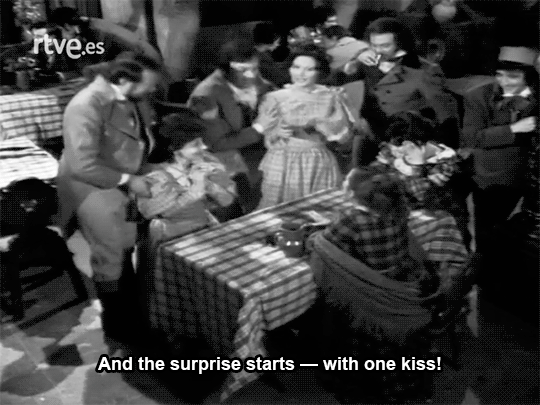
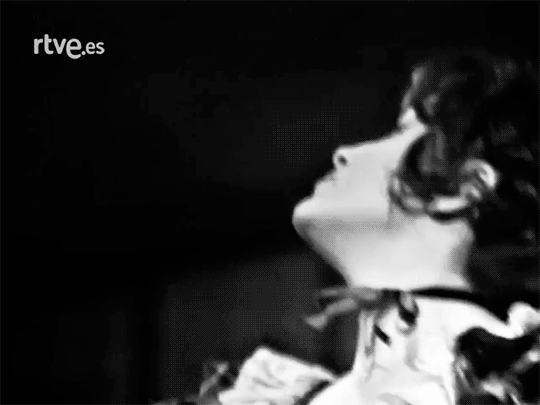

LES MIS LETTERS IN ADAPTATION - The Death of a Horse, LM 1.3.8 (Los Miserables 1971)
“It begins with a kiss,” said Blachevelle.
“On the brow,” added Tholomyès.
Each gravely bestowed a kiss on his mistress’s brow; then all four filed out through the door, with their fingers on their lips.
Favourite clapped her hands on their departure.
“It is beginning to be amusing already,” said she.
“Don’t be too long,” murmured Fantine; “we are waiting for you.”
#Les Mis#Les Miserables#Les Mis Letters in Adaptation#les Mis Letters#Fantine#Tholomyes#Felix Tholomyes#lesmisedit#lesmiserablesedit#Los Mis 1971#Los Miserables 1971#losmiserables1971edit#tvedit#pureanonedits#I am so tired from digging through adaptations to find the ones that actually adapted this bit#I'm going to be so knowledgable about obscure Mis adaptations by the end of this#LM 1.3.8
61 notes
·
View notes
Text
Arai is possibly the only adaptation I've seen that includes the title of Les Mis chapter 1.3.8, "The Death of a Horse."
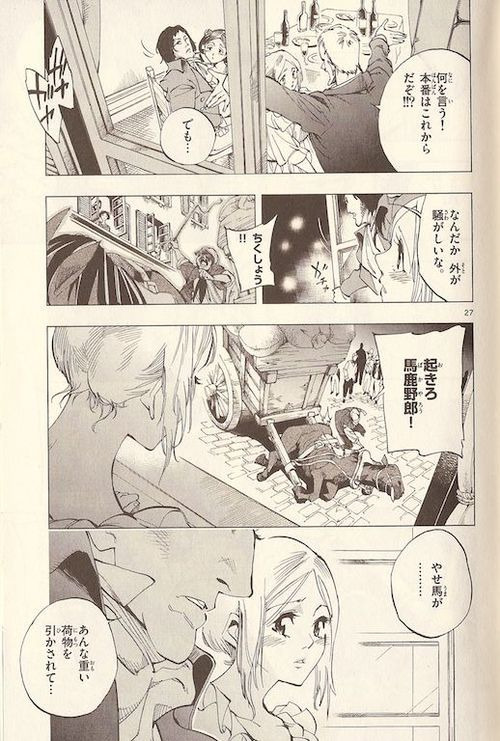
Soon afterwards, though, the men go off to fetch the "surprise."
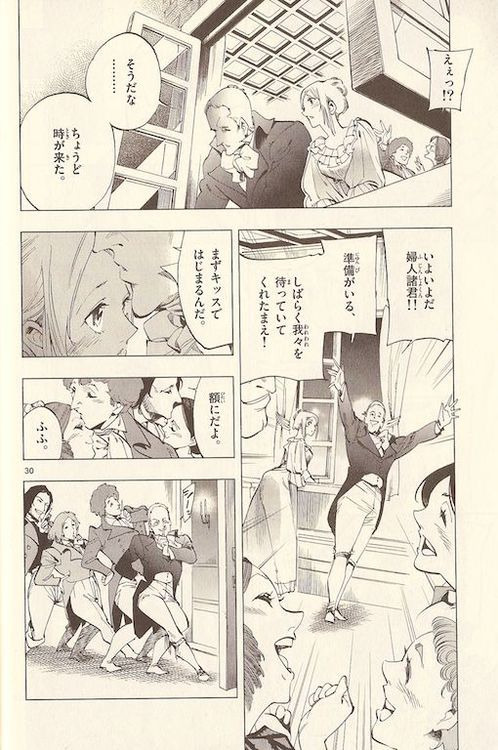

Wow, what can the surprise be? I'm sure that the ominousness of that final panel means nothing at all.
#les miserables#les mis letters#les mis arai#lm 1.3.8#animal cruelty cw#animal abuse cw#fantine is yelling on that final page#don't take too long#we'll be waiting for you
72 notes
·
View notes
Text
I think the horse’s death in this chapter is serving multiple functions.
On one level, Fantine’s genuine sadness at witnessing this differentiates her from the others. Tholomyès sees the horse’s death as a chance to show off his skills with language; he is eulogizing the horse, in a way, but it seems like his intent is to illustrate his abilities with puns more than anything else, reflecting his general self-absorption that he covers with an intellectual air. The other girls are the ones to notice Fantine’s reaction. Notably, Tholomyès says nothing about her, again highlighting how he overlooks her most of the time. I don’t think their astonishment that Fantine is crying is supposed to be cruel, exactly. I think they’re somewhat jaded more than anything else (I realized that that was a pun as I wrote it and I’m very sorry, but I think Hugo has contaminated me enough that I don’t want to take it back). That cynicism is a problem in and of itself, of course, and it limits their compassion for the weeping Fantine and the dead horse. But the way Dahlia criticizes Fantine as a “pitiful fool” suggests that this may be another instance where the contrast is meant to point out Fantine’s naivety, rather than an inherent difference in kindness (although that might be there, too).
The horse’s death also marks a sudden dark turn in the narrative. The past few chapters have had a celebratory atmosphere, and while there have been hints that something is wrong (like Tholomyès picking Favourite), the overall tone has still focused on the “wonders of youth and love.” Having their revelry be interrupted by death just before the “surprise” doesn’t bode well.
Spoilers below:
I also find it interesting that the horse dies of overwork specifically. It reminds me of what happens to Fantine. While Hugo links the horse’s weakness to age and Fantine’s was more due to sickness, their inability to rest and recover their strength (because of poverty - the horse’s owner could just be cruel, but it’s more likely that the horse’s labor is needed) is what dooms them. The spectacle of what happens to the horse is notable as well. Only in dying does anyone pay attention to the horse, who has likely been suffering for a while. Similarly, Fantine is occasionally met with pity for her condition, but she only gets public attention when she fully breaks down. The callousness of society means that they have to reach a point from which they can’t recover before they’re even noticed, and when they do, it might be that all they’ll receive is a few empty words.
53 notes
·
View notes
Text
“Tholomyès, once started, would have found some difficulty in stopping, had not a horse fallen down upon the quay just at that moment.”
thank god for that horse’s brave sacrifice, so i am released from hearing aspasia , whom i’ve just googled and who seems really cool, and have her described as a Goddess prostitute, who Had A Soul Before Other Woman Did
(aspasia apparently lived in the fifth century BC, so when exactly would tholomyès say women started to get soul? im curious, since it apparently happened between the fifth century BC and 1817, and i’d wanna know abt such a seemingly instrumental part of women’s history
#les mis letters#lm 1.3.8#this man is so stupid#it makes me angry#if one character deserves to be punched#it's him#if it's two characters#im picking him twice
9 notes
·
View notes
Text
Brickclub catchup: I.3.6-I.3.9
I have fallen behind in posting because I just don’t want to write about Tholomyès. He is objectively the worst. He limbos under the very low bar for paternal responsibility set by Favourite’s asshole father and M. Gillenormand; he cheats on Fantine with Favourite and makes fun of her to her face; he orchestrates the public jilting of the grisettes with nothing more to show for the affair than one moderately-nice dinner; and his shitty drunken rambles manage to have less point or moral coherence than Grantaire’s.
And now he’s going to go home to Toulouse and become a magistrate, because fuck everything.
Fantine, though! This time through, I am reading with @pilferingapples‘ autistic headcanon in mind for Fantine, and these chapters are awfully convincing. She’s distant and doesn’t make eye contact, and the other grisettes think she’s stuck-up. She has no artifice and no ability to see through it in other people--she’s frankly a terrible judge of character, as we will continue to see--but she notices small things out of joint in the world, like the stagecoach’s stopping. The others mock her for her dreaminess, but she’s not unobservant--though she’s probably socially and sensorily overwhelmed with the noise and the crowd. And she empathizes with the dead horse, when everyone else sees it as an inconvenience at worst, and more likely a spectacle and an occasion for jokes.
38 notes
·
View notes
Text
LM 1.3.8 (retrobrick)
..under the cut for discussion of highly symbolic animal cruetly?
LM 1.3.8
..Okay, maybe this is my favorite metaphor in the book, now that I'm revisiting it. Because the horse is s Fantine , obviously (though I can't help thinking of Eponine if a horse is making a dramatic appearance, but ...this is not how Eponine's story really ends at all...bold stand making FANTINE the one with the Horse Imagery, Hugo) , and the cart is, I'm guessing, society, more or less. And while this reflects Fantine's ultimate fate , it also sets up an argument that Fantine (and those like her) are the ones making society move , the ones allowing for any progress at all--for which they are abused and destroyed , and mocked even as they fall. But without the horse, the cart is just stuck there...at least until another horse can be dragged over , to take its fatal turn in the cycle of abuse.
As for Fantine, her death sentence is already being pronounced, by her cheating ex. Tholomyes is filking a nice piece of poetry that Donougher's footnotes translate as
"She belonged to a world Where the loveliest things meet the worst fate And being a rose, she lived as roses do
But the space of a morning"
-- a poem the author Malherbe wrote (..twice) for friends, in respect for the death of a very young child. The original poem is a commiseration about the fragility of life, meant to honor a very loved person who died by reasons the survivors were powerless to stop; an attempt to find some kind of peace with mortality and horrible loss.
Tholomyes does ...this (translation via Julie Rose):
"She was of a world Where cuckoos and carriages have the same fate And being a nag, she lived the way nags live,
For the space of a morning"
...yeah.
Tholomyes singing his little dirge here reminds me of someone (forgive me, I need to reread some posts!) pointing out that for all Courfeyrac gets the direct comparison to Tholomyes, he can easily be read as the Evil Mirrorverse version of Bossuet. I think that holds pretty well, actually. Bossuet will even have his moment with a horse and cart -- and he'll set the horse free.
But here and now, no one cares about the horse but Fantine, and she can't help --and even her expression of sympathy gets her mocked by Dahlia. Honestly this group just sucks for her in particular ,but this feels especially awful . I don't expect characters to recognize their own unfolding symbolism- but everyone here knows Fantine's situation, everyone but Fantine realises that these relationships are nearing their end, and none of them , even now, can spare enough sympathy for her to just not make fun of her for five minutes, oh my god. But Fantine and the horse are reflecting the same thing here too-- the way cruelty becomes casual , becomes normal, nothing to be astonished about.
This chapter, and this metaphor, are hugely upsetting and Not Wrong and I don't really have anything deeper to say on that!!
36 notes
·
View notes
Text
The one with more of the shallow talks. How do they manage to drain any substance from every conversation?
So, Hugo was the first one to use the imagery of a horse dying of exhaustion (I can think of a few more authors who did the same but later). Sadly, this scene is ominous, foreshadowing Fantine’s own end. A poor Beauceron mare was “dragging a very heavy cart.” Too heavy to endure. And no one feels pity for this poor creature, apart from Fantine.
The rest of the company is back to discussing the surprise. Well, well. At least, this is the last time we had to listen to Tholomyès.
17 notes
·
View notes
Text
Round 1, Matchup 32: I.iii.8 vs II.iii.3
5 notes
·
View notes
Text
Brickclub 1.3.8 ‘Death of a horse’
This chapter was completely impenetrable on first reading, so I reread it in Rose, who includes a very helpful footnote saying that as far as she can tell, Hugo made up a few of those references, namely Munophis of Elephanta and Thygelion of Cheroneus.
Tholomyes is still talking, and god, I wish I felt less like I knew this guy. He’s that straight cis white dude in undergrad who’s read a couple of books and thinks he’s worked out how the world works on his own because straight cis white dudes are allowed to believe themselves unbiased observers. None of his exciting facts about what altitude their wine comes from involves anything about labor or exploitation or the human context, because why would anybody consider that?
No, his role in the world is just to dazzle people with his intelligence. Several times, the men consult his opinion, and he always chooses a left-field, popular, unintellectual option rather than an intellectually impressive one. And, tbh, I might do that too if asked--but when he does it feels like it’s about being ostentatiously too cool to care.
This book has opinions about being too cool to care. Fuck yeah, book.
Also, Tholomyes begins his rant this time with “I agree to live,” which seems like an answer made to another, later set of students--and also to that chapter during the barricade where Hugo says dying for the cause is good and right, but the choice to live is also a human right. Very well--Tholomyes accepts.
It’s interesting that (..I think?) we never really know their politics. The mention of a royalist last chapter dampened the mood, but it’s not clear exactly where they themselves stand unless there are political signals that went over my head. (Or if the class of students is assumed in general to stand within a certain political range.) I suspect the point is their politics aren’t very important.
And... fuck, of course the horse is a mare; this is a section about women being screwed over. The description of that horse is going to sound like descriptions of Fantine later.
Fantine is the only one here able to empathize with someone else’s suffering. Her “Poor horse,” has more in it that’s worthwhile than all the clever things everyone else has been saying.
But also, I feel like the cultural assumption now is that everyone feels sorry for sad animals, at least sad animals in front of them? I don’t assume the feelings have changed drastically, except maybe in exposure--we rarely see horses where I live, and never sick ones. But Favourite would sound very odd saying this today.
But Hugo’s point that people look away from suffering rather than taking the effort and inconvenience of feeling it remains perfectly true.
23 notes
·
View notes
Text
All Tholomyès does is make puns and references to antiquity....
But I would like to dive into one of the puns he makes in this chapter (1.3.8) because of its relevance to Fantine.
When an overworked, tired, thin, mare (a “nag”) peters out from exhaustion while pulling a heavy cart, the cart driver shouts “mâtin!” at her while cracking his whip. The word “mâtin” literally means “mastiff” but in more figurative senses it can be used to refer to people in a few different ways. It can be used pejoratively, i.e. “boor, oaf”, to refer to a mischievous child, or someone with an ardent temperament. It can also be used is as an exclamation of surprise (“heavens!”). It’s clear the cart driver is using it in a derogatory sense towards his horse.
However, “mâtin” is pronounced the same as “matin” which means “morning.” So in his never ending efforts to appear clever, Tholomyès mimics the form of another poem with his own:
“She was from this world where carts and carriages Have the same destiny, And, as a nag, she lived the way nags do, For the space of: mâtin!” (pun on matin = a morning)
So there you have it, he heard the cart driver’s exclamation and made up his own version of a poem about the poor horse in order to get that final punchline in there.
If anyone has more insight on the word “coucou” (used in the first line of the poem “où coucous et carrosses”), I would be interested to hear your take on it. I was initially confused by the translation of “cuckoo” (which is exactly what I thought it was referring to) BUT, I found an entry in Wiktionary that says it was used to mean “a horse-drawn carriage that provided on-demand passenger transport in the suburbs of Paris between 1780 and the middle of the 19th century.”! I feel like that must be what it’s referring to??
45 notes
·
View notes
Text
Brick Club 1.3.8 “Death Of A Horse”
Lots of reference research and then Angry Feelings About Tholomyes in this one.
The facade is starting to crumble. Tholomyes has just kissed Favourite instead of Fantine. He’s drunk and even his friends want him to shut up. And now Zephine is complaining that she likes the food at Edon’s better than Bombarda’s.
Blacheville points out the mirrors on the walls, and there’s some wordplay there with Favourite re: “glace” for looking glass and ice creams. This also sounds like Favourite deliberately defying Tholomyes’ earlier rant about not eating sugar.
Tholomyes has a weird moment, he seems maybe about to get maudlin. “Silver is more precious than bone,” says Blacheville, to which Tholomyes replies “Except when it’s on the chin.” I may be reading this wrong, or backwards, but this sounds like a brief insecurity about aging. (Also I imagine the fact that he’s staring out at the dome of the Invalides is significant, but I don’t know why.)
“A discussion is good, a quarrel is better” is really just an excellent summary of what kind of “devil’s advocate” type douchebag Tholomyes is. (It’s also interesting that at no point does he “discuss,” “debate,” or “quarrel” with any of them. He has the floor and he monologues, there’s never any real back and forth with him.)
Tholomyes is pretty drunk at this point, so I’m really not sure if this following dialogue is him being mocking or him fully dismissing philosophy altogether in favor of theatre. I’m inclined to assume it’s the second, considering his earlier comments about preferring theatre. Descartes and Spinoza are, obviously, philosophers, but Desaugiers was a composer of operas and comedies, as well as the manager of the Vaudeville from 1815 until 1820. Either way, Tholomyes is pretty blatantly saying here that he doesn’t much care for philosophy.
He’s kind of the anti-Amis here, professing essentially that he doesn’t like Serious Thinking and would rather be entertained by theatre or by grisettes than think about anything substantial. His improvising is mostly empty, crappy advice where he criticizes women and gives bad dating opinions (compare with Grantaire’s improv which is mostly good social/political critique with dashes of obnoxiousness). His “wisdom” is comprised of the 19th century version of sexist pricks saying a bunch of stupid shit and then wondering why women don’t like ��nice guys like him.”
More going on about contradictions, only this time seriously, rather than in the form of punnery. Life is about contradictions and irrationality, according to Tholomyes. He’s trying to be all science-y, but then he just goes back to talking about food. He goes on about how the wine they’re drinking is from a higher altitude, but it’s cheap. (Interesting that so far all of his improvised speeches have either been about women or food/drink.)
Fameuil gets a little barb in, though. He asks Tholomyes who his favorite writer is. Arnaud Berquin (which is Fameuil’s guess) was a French children’s author in the mid to late 1700s, so basically Fameuil is calling Tholomyes childish and maybe a little stupid. Berchoux (Tholomyes’ answer) was a comedic poet who invented the word “gastronomy.”
Everything with Tholomyes comes back to the sensual pleasures. Food and sex and theatre and gratification without having to actually reciprocate. This is drastically different from nearly every other character that we see. Most of them are incredibly poor and have barely any access to things necessary for survival, much less pleasure. Or, like Valjean or Javert, deny themselves sensual pleasures for various reasons. (Valjean out of piety and guilt, Javert for control, except for his little pinch of tobacco.) Tholomyes just cares about his own pleasure (but not his own personal wellbeing, considering Hugo says he’s “in poor shape” and basically physically gross) and whatever manipulation or money or schmoozing it takes to get it.
And a sudden barrage of references! Thargelia was a famous ancient Greek courtesan/hetaera who was very powerful and full of wit and had connections to Persian royalty. Hugo seems to have masculinized the name and imagined what that version would be like. I cannot find anything on Munophis of Elephanta; I’m guessing Hugo has butchered the spelling enough that whatever it is has become impossible to figure out, or he was talking out his ass. Apuleius wrote Metamorphosis, which had a lot of commentary on cultural/social life of the time; also Apuleius was part of the Dionysian cult. He quotes Solomon in Ecclesiastes (there is nothing new under the sun) and then pronounces that love is the same (quoting Virgil), there is nothing new there, either. From what I can understand by skimming that section in Georgics, that part of Virgil is about animal husbandry and is specifically talking about horny animals and how they’re going to want to mate no matter what. He’s basically saying that all men are horny and that‘s not going to change, and that they’re going to care more about sex than romance and always have. As far as I can tell, “carabine/carabin” is referencing a sex worker who caters to “carabin” aka medical students, although I’m not sure why the barge at Saint Cloud? Aspasia was the lover of Pericles; some sources depict her as a prostitute. She was foreign, so she actually had more rights than native Greek women, and she was very beautiful and very smart and witty.
Basically, Tholomyes is being a slimy bastard and saying men don’t want romance and women are there to keep men entertained and their dicks wet, and if they’re smart/witty as well as a good lay, that’s even better (perhaps a backhanded compliment for Favourite here? Since she’s supposed to be the “clever one”). Asshole. God, I hate him.
I know most people seem to say that Thenardier is the worst character in the Brick, the closest to a “bad guy” you can get in this book, but I think it’s actually Tholomyes. Thenardier, throughout the book, is awful, but most of his horrible actions are at least primarily fueled by desperation and a complete lack of access to, well, anything. Tholomyes, on the other hand, is the opposite of socially or financially desperate. He’s a rich, charismatic law student who thinks he’s hot shit. He manipulates and uses a girl 11 years younger than him, gets her pregnant, cheats on her, mocks her in front of his friends as well as her own friends (or the girls she thinks are her friends), never corrects her about the nature of their relationship, and then abandons her completely in a cruel prank. And if we’re interpreting this whole monologue right, it’s all for his own amusement. What a horrible, awful man.
The death of this poor weak horse feels like a foreshadowing, or at the very least a metaphor for the plight of poor women. Made to work hard, sacrifice themselves, starved, tired, and even when they’ve fallen either morally or literally, they’re blamed rather than helped, and then they die because no one ever tries to help them.
Tholomyes riffs on Francois de Malherbe in reaction to the death of the old horse. The Malherbe quote is from a letter of condolence to a colleague on the death of his daughter and says “But she bloomed on earth, where the most beautiful things have the saddest destiny; / And Rose, she lived as live the roses, for the space of a morning.” Tholomyes’ riff is (as best as I can do with google translate) “She was of this world where cuckoos [or cuckoo clocks?] and carriages have the same fate / And, nag, she lived as live the nags, in the space of a morning.”
Fantine gets her first spoken line here, sympathizing with the horse. Which, if this is foreshadowing as well as general commentary, is just so sad. Also, the fact that everyone else brushes off the horse’s death is interesting. If it is a metaphor, so is this brushing off. The grisettes are highly aware of their precarious position in life. One bad thing can send it all crashing down; but they expect it. They don’t sympathize or feel bad about it because they’ve seen it happen around them, they know it’ll happen to them one day too.
Favourite is the one who remembers the surprise. She’s been the only one of the girls actually talking about it. She’s the one who gets the dialogue asking for it and the one that keeps reminding the men about it. I don’t think she’s in cahoots with them about it or anything, but I wonder what she thinks is going on.
Also interesting that the “moment” that is suddenly right for this surprise has just been preceded by a downturn in mood at the shock of the dead horse. This horse has just dropped, and now the girls are waiting for yet another crushing emotional blow.
The fact that Tholomyes derails the kiss to a kiss on the forehead is definitely him trying to distance himself from Fantine. A kiss on the mouth would perhaps make her think he has feelings for her, that there’s any emotion involved in this at all. Plus he’s been cheating on her with Favourite. A kiss on the forehead is distant enough that it’s more emotionally “safe” for all of them, but especially Tholomyes, who really just wants out of this whole situation because he really doesn’t want to deal with a girl having feelings for him (or his child!) or pretty much anything that doesn’t have to do with his own pleasure. He’s just so manipulative and sleazy, I hate him.
The difference between Favourite’s reaction as they walk out the door and Fantine’s reaction is interesting to me because it seems to confirm just how oblivious Fantine really is. It’s not like she’s judging the others and thinks she’s in a Real Relationship, which is not like what the other girls have. She’s definitely not even remotely aware of the emotional status quo that everyone else recognizes. Favourite thinks it’s all good fun and games. Fantine seems to genuinely think that everyone else feels the same as she does about their affairs with the students. She seems to assume that she’s not the only one who’s in love. All the more shock for her in the next chapter, when the other girls are laughing and she’s devastated.
This whole thing is made all the worse with the fact that every single person involved in this affair is extremely aware of the difference between Fantine and everyone else. They talk about it to each other, and even to Fantine, who doesn’t seem to notice or get it. They probably giggle about her behind her back the entire time. They all know she’s in love with Tholomyes, and I assume they all know she also has a kid. They are perfectly aware of the difference between her and them. Which means all of the men are perfectly aware of how she’ll probably react to the “surprise” and what it might do to her socially. They don’t give a shit. They obviously think she’s a space case and a child and probably think she’s “no fun” compared to the other grisettes. So it doesn’t matter to them what happens to her; it doesn’t even matter to the other grisettes what happens to her, because they’re laughing at her too.
#les miserables#les miserables meta#brickclub#les mis#les mis meta#lm 1.3.8#I am Angry About Tholomyes but bad at articulating it#because most of my thoughts are just a scribble of 'disgusting horrible awful sleazy manipulative gross motherfucker i hate him so much'#also it's almost 7am and i haven't slept yet so that might have something to do with it too
12 notes
·
View notes